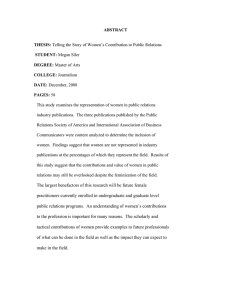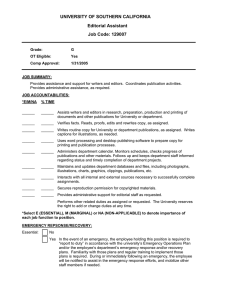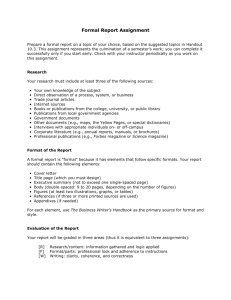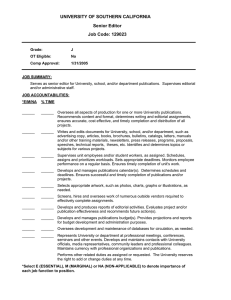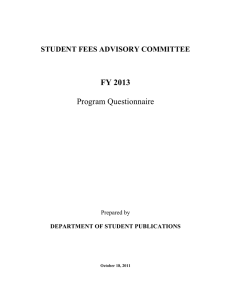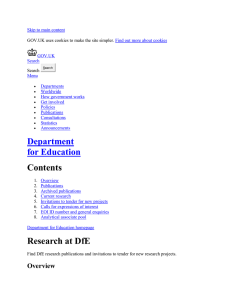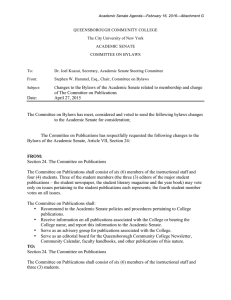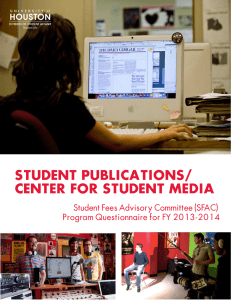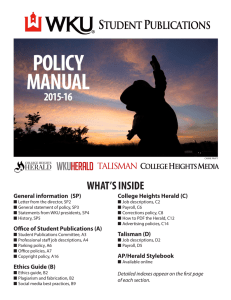Irish Mathematical Society Bulletin 54, Winter 2004 EDITORIAL
advertisement
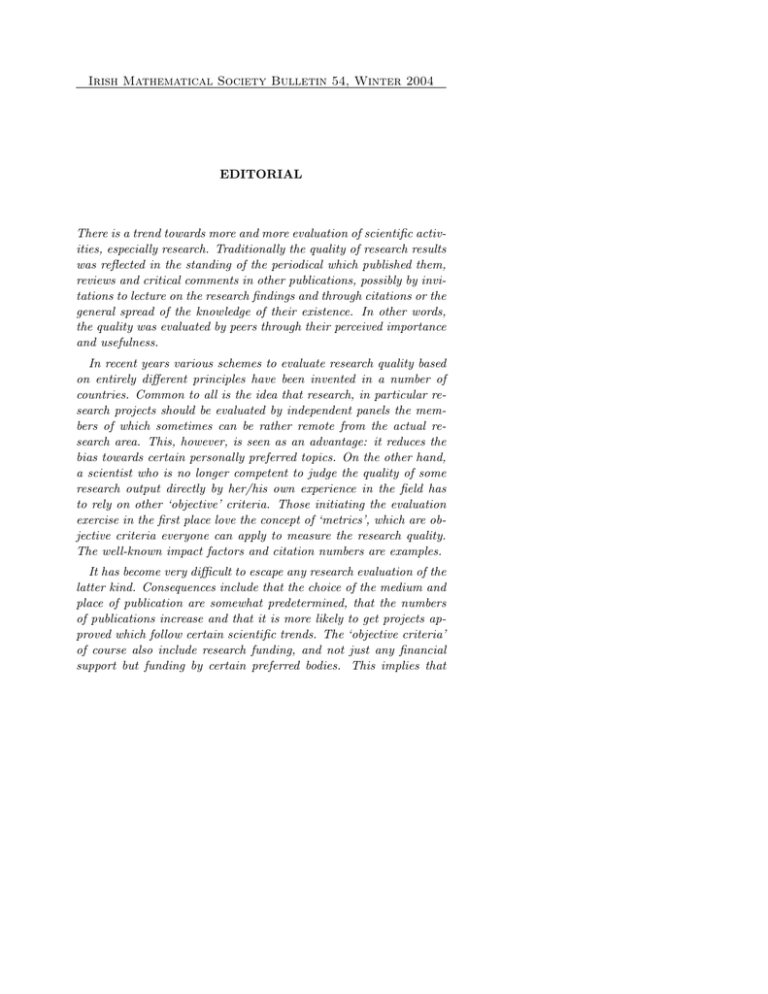
Irish Mathematical Society Bulletin 54, Winter 2004 EDITORIAL There is a trend towards more and more evaluation of scientific activities, especially research. Traditionally the quality of research results was reflected in the standing of the periodical which published them, reviews and critical comments in other publications, possibly by invitations to lecture on the research findings and through citations or the general spread of the knowledge of their existence. In other words, the quality was evaluated by peers through their perceived importance and usefulness. In recent years various schemes to evaluate research quality based on entirely different principles have been invented in a number of countries. Common to all is the idea that research, in particular research projects should be evaluated by independent panels the members of which sometimes can be rather remote from the actual research area. This, however, is seen as an advantage: it reduces the bias towards certain personally preferred topics. On the other hand, a scientist who is no longer competent to judge the quality of some research output directly by her/his own experience in the field has to rely on other ‘objective’ criteria. Those initiating the evaluation exercise in the first place love the concept of ‘metrics’, which are objective criteria everyone can apply to measure the research quality. The well-known impact factors and citation numbers are examples. It has become very difficult to escape any research evaluation of the latter kind. Consequences include that the choice of the medium and place of publication are somewhat predetermined, that the numbers of publications increase and that it is more likely to get projects approved which follow certain scientific trends. The ‘objective criteria’ of course also include research funding, and not just any financial support but funding by certain preferred bodies. This implies that iv Editorial the research activity has to fit into their programmes and objectives; and has to contribute to the furthering of knowledge in a way defined outside science. ‘Research projects’ become the word of the day. Preferably of larger groups, with many international links and collaborators, interdisciplinary and a leaning to industrial applications. An important part of an application for a research project is the proper managing of it; to an extent which can take a larger proportion than the scientific content. The profile of a research academic has changed: from a knowledgable scholar to a project manager well-experienced in working with evaluation panels and committees. The original task to read someone else’s publications to learn about their findings has been replaced by weighing them against objective criteria. Good science used to be associated with the name of a leading expert. A scientifically reliable person who by ability and knowledge could further the field and motivate the younger generation. The most rewarding experience—certainly for me—has been to know such persons and to be encouraged by them. There were outstanding examples but they seem to become fewer. —MM
